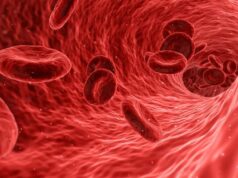
Aethlon Medical grabbed headlines a few years ago when its HemoPurifier blood filtering device was used on an emergency basis to treat a physician who had contracted Ebola while working in West Africa.
The technology was able to reduce the individual’s viral load and eventually lead to a full recovery.
The San Diego company’s device consists of a plasmapheresis cartridge filled with hollow fibers allowing for fluid flow and a plant protein called galanthus nivalis agglutinin, which has the ability to bind to certain viral agents.
In its route to commercialization, the company initially looked at hemorrhagic fevers and chronic viral diseases as target indications for the technology. However issues with the clinical trial process and the emergence blockbuster pharmaceuticals from Gilead and Abbvie dried up the company’s initial market in hepatitis C.
Last year, the company’s board brought in a new CEO to help steer Aethlon toward a new focus in oncology and the organ transplant market.
“Doing a controlled trial in Ebola would be virtually impossible,” Aethlon CEO Tim Rodell said in a phone interview. “Our technology also currently relies on the infracture of dialysis systems which is not widespread in the locations where Ebola has emerged.”
Instead much of the company’s recent development and research efforts has been in applying the use of the technology to capture exosomes, a type of extracellular vesicle that research has shown plays a role in suppressing immune response and spreading cancerous cellular material around the body.
Cancerous exosomes and the viruses targeted by the Hemofilter share similar characteristics, including size and the prevalence of a sugar called mannose in their outer covering, which binds to the protein in the device.
One of the Aethlon’s subsidiaries is Exosome Sciences, which is focused on the discovery of exosome-based biomarkers.
The company received an FDA Breakthrough Device designation in 2018 for use of the Hemopurifier for the treatment of advanced or metastatic cancers and where exosomes have shown to be a contributor to disease.
The company’s oncology efforts have mainly been in the solid tumor space in advanced head and neck cancers, pancreatic cancer and advanced melanoma.
Rodell said the company plans to launch initial clinical trials for the use of the Hemopurifier in oncology later this year.
The public company has a current market capitalization of around $6 million and Rodell spoke about initiating fundraising efforts to support the growth of its cancer programs.
Another potential growth market would take the Hemofilter’s viral filtering abilities and apply it to the transplant market.
Earlier this month, the company announced a cross-licensing deal with SeaStar Medical, another blood filtration company currently focused on using its technology to help ease the organ transplantation process. The partnership will involve the two companies co-developing new products utilizing both technologies.
Rodell pointed to one example as increasing the percentage of transplantable organs by using the HemoFilter to treat hepatitis C in infected organs.
SeaStar’s CEO and chairman Charles J. Fisher also serves as the chairman of Aethelon’s board and said he saw the potential of combining the two companies’ complementary medical devices.
When asked about the cross collaboration being a potential precursor to a merger, Rodell remained mum citing SEC rules on the disclosure of future business plans for public companies.
Picture: nopparit, Getty Images








